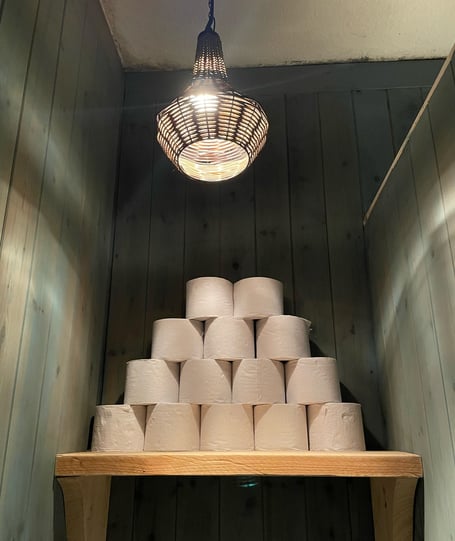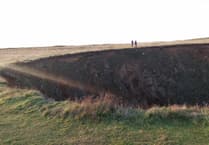IT is extraordinary to think that four years ago we were in deep lockdown, and life was so radically different.
One of the memorable incidents was the sudden rush to stock up on essentials leading to empty shelves, and a toilet roll shortage.
As a nation we are close to leading the world in our use of toilet paper. Research by the Ethical Consumer magazine suggests the average Brit uses 127 rolls a year, and 10,385 rolls in their lifetime. In the US the yearly average is 141, while in Turkey it is 9, and Nigeria only 1.
It is increasingly hard to find fully recycled toilet paper, but it is not only fully recycled toilet paper that has suffered. Mainstream brands have also been cutting the percentage of recycled material in their products, and relying on virgin pulp.
Lately bamboo has been used as an alternative to wood pulp. It is fast growing, so a good alternative.
We use a lot of toilet paper in our holiday lets and so this is an important issue for us. We’ve done quite a bit of research and have opted for an unbleached, plastic-free recycled option. It comes in cardboard boxes from a BCorp company that uses renewable energy for their processing plant. Unfortunately we couldn’t find a UK option that was good enough quality, so it is produced in Europe, but hopefully this will change in the future. Because it’s unbleached the paper is brown; perhaps one day this will become the norm.
What struck me most in my research was that there is no truly guilt-free toilet paper. The process of making all toilet papers has been linked with forever chemicals (polyfluoroalkyl substances, also known as PFAS) in our water. This is probably to do with lubricants used on machines. The only ethical option is to reduce.
An easy first move is to start using hankies again. A good quality hankie is more practical than tissue or toilet paper. I’m still using hankies that I’ve had for decades. If I have a cold I replace them frequently and wash my hands more often, to prevent the spread of germs.
Many nations prefer to wash with water, and consider toilet paper uncivilised. There is a lot to be said for this. If you have are not sharing a bathroom with others, then a flannel by the sink that is regularly changed is a good option. Washing in a sink uses very little water.
Perhaps the last word should be a quote from an Ethical Consumer reader. "We wash our faces and bodies with water, so “cleaning” with toilet paper makes no sense, it just feels so much nicer to use water and be really, really clean!”





Comments
This article has no comments yet. Be the first to leave a comment.